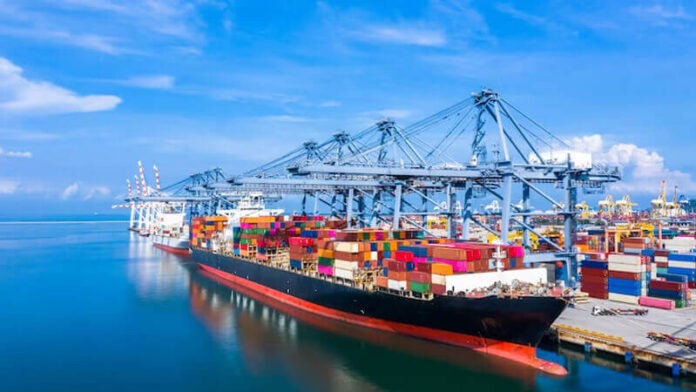In the ever-evolving maritime industry, the role of technology in ship management has become increasingly vital. As shipping companies face mounting pressure to improve operational efficiency, reduce costs, and meet stringent environmental regulations, integrating advanced technologies into ship management processes has emerged as a crucial strategy. This article delves into the various technological innovations that are transforming ship management, enhancing efficiency, safety, and sustainability.
The Need for Technological Integration in Ship Management
The maritime sector is one of the oldest industries in the world, yet it has traditionally been slow to adopt new technologies. However, with globalization, increased competition, and regulatory demands, ship management is undergoing a significant transformation. Effective ship management is no longer just about navigating vessels from point A to point B; it encompasses a broad spectrum of activities, including crew management, maintenance, compliance, and environmental stewardship. Technology plays a pivotal role in streamlining these processes and ensuring that vessels operate efficiently and safely.
Digital Transformation in Ship Management
- Fleet Management Software
One of the most significant technological advancements in ship management is the advent of fleet management software. These systems provide ship managers with real-time data on vessel performance, fuel consumption, and route optimization. By leveraging data analytics, fleet management software helps companies make informed decisions, reduce operational costs, and enhance overall fleet efficiency. This technology allows ship managers to monitor various parameters, such as speed, weather conditions, and cargo status, ensuring that vessels operate at optimal levels.
- Internet of Things (IoT)
The Internet of Things (IoT) has revolutionized ship management by enabling vessels to be interconnected through a network of sensors and devices. These IoT devices collect and transmit data on various aspects of ship operations, such as engine performance, fuel efficiency, and maintenance needs. By analyzing this data, ship managers can proactively address potential issues, minimize downtime, and enhance overall operational efficiency. The ability to monitor vessels remotely allows for better resource allocation and improves decision-making processes in real-time.
- Predictive Maintenance
Another significant technological advancement in ship management is predictive maintenance. Utilizing data analytics and machine learning algorithms, predictive maintenance helps ship managers anticipate equipment failures before they occur. By analyzing historical data and real-time performance metrics, this technology enables operators to schedule maintenance activities at the most opportune times, thereby reducing unplanned downtime and extending the lifespan of critical equipment. This proactive approach not only enhances operational efficiency but also reduces maintenance costs.
- Autonomous Vessels
The development of autonomous vessels represents a groundbreaking shift in ship management. While still in its infancy, this technology holds the potential to revolutionize maritime operations by reducing human error and improving safety. Autonomous vessels can navigate using advanced sensors, machine learning algorithms, and GPS technology, enabling them to operate with minimal human intervention. As this technology matures, ship managers will need to adapt their management practices to accommodate the unique challenges and opportunities presented by autonomous shipping.
Enhancing Safety and Compliance through Technology
- Safety Management Systems (SMS)
The integration of technology into ship management has also led to the development of advanced Safety Management Systems (SMS). These systems utilize data analytics to monitor safety protocols and compliance with international regulations. By automating safety checks and documentation processes, SMS reduces the administrative burden on ship managers and enhances overall safety performance. Furthermore, real-time monitoring of safety equipment and procedures helps ensure compliance with industry standards, minimizing the risk of accidents and liabilities.
- Training and Simulation Technologies
Effective ship management relies heavily on well-trained crew members. Technology plays a crucial role in enhancing crew training and development through simulation and virtual reality (VR) technologies. These tools provide realistic training scenarios that enable crew members to practice their skills in a controlled environment. By using advanced simulation technologies, ship managers can ensure that their crews are well-prepared to handle emergencies and operate equipment safely, ultimately improving overall vessel safety.
Environmental Stewardship and Sustainability
- Fuel Management Systems
As the maritime industry faces increasing pressure to reduce its environmental impact, technology plays a critical role in promoting sustainability. Fuel management systems are essential tools in modern ship management, helping operators monitor and optimize fuel consumption. These systems provide insights into fuel efficiency, enabling ship managers to implement measures that reduce emissions and comply with international regulations. By analyzing fuel usage patterns, ship managers can identify areas for improvement and adopt best practices to enhance overall sustainability.
- Emission Monitoring Technologies
With stringent regulations such as the International Maritime Organization’s (IMO) Sulphur Cap, effective emission monitoring has become a key aspect of ship management. Advanced emission monitoring technologies allow ship operators to track and report emissions accurately, ensuring compliance with environmental regulations. By utilizing these technologies, ship managers can identify sources of emissions, implement corrective actions, and contribute to the industry’s efforts to reduce its carbon footprint.
Challenges and Considerations
While technology offers numerous benefits to ship management, it also presents challenges that must be addressed. Cybersecurity is a significant concern, as the increasing reliance on digital systems makes vessels more vulnerable to cyberattacks. Ship managers must implement robust cybersecurity measures to protect sensitive data and ensure the integrity of their systems.
Additionally, the rapid pace of technological advancements requires ship managers to stay informed about emerging trends and invest in ongoing training for their crews. As new technologies are adopted, it is essential to ensure that all personnel are equipped with the knowledge and skills needed to operate these systems effectively.
Conclusion
The role of technology in modern ship management is undeniably transformative. From enhancing operational efficiency to improving safety and sustainability, technology is reshaping the maritime industry in profound ways. As ship managers embrace these innovations, they must also remain vigilant about the challenges that accompany technological integration. By leveraging the power of technology, the maritime industry can navigate the complexities of modern ship management and chart a course toward a more efficient, safe, and sustainable future. The future of ship management lies in the ability to adapt to these technological advancements and harness their potential to drive positive change in the industry




















